Schema Maintenance
- “A schema is an abstract representation of the distinctive characteristics of an event, a kind of blueprint of its most salient elements.”
- “[A schema is] an abstract cognitive plan that serves as guide for interpreting information and solving problems.”
- “[A schema is] any broad organizing principle for making sense of one’s life experience.”
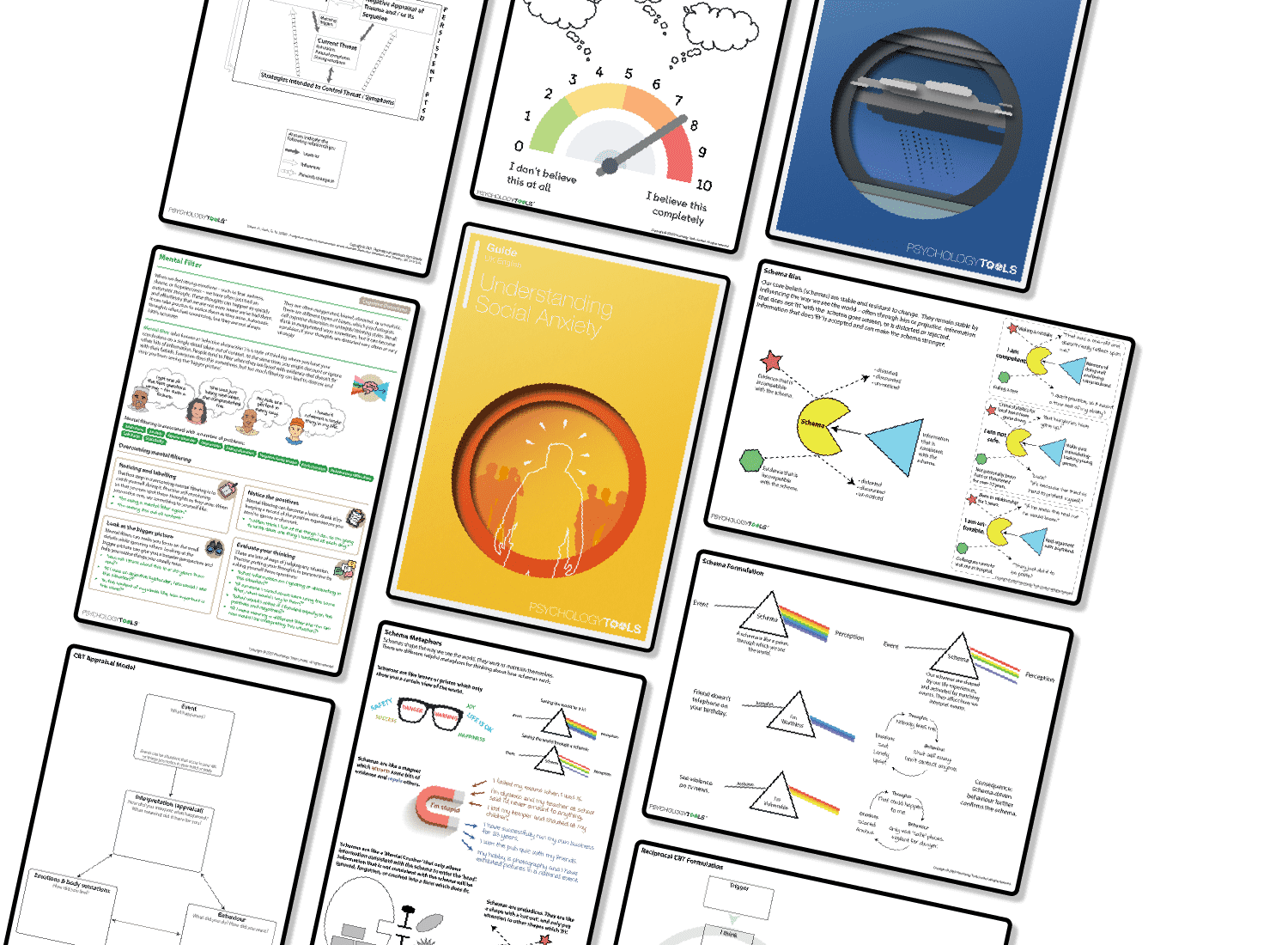
Early Maladaptive Schemas
Negative Parenting Styles (Schema Therapy)
Unrelenting Standards
Embracing Uncertainty
Self-Sacrifice
Intolerance Of Uncertainty
Social Anxiety Formulation
Unmet Emotional Needs
Vulnerability To Harm
Behavioral Experiment
What Are Schemas?
Anxiety - Self-Monitoring Record
Behavioral Experiment (Portrait Format)
What Keeps Depression Going?
Abandonment
Coping Styles And Responses (Schema Therapy)
How Your Past Affects Your Present (CBT)
CBT Model – Maintaining Processes – Past And Present
How Your Past Affects Your Present (Schema Therapy)
Overcoming Depression (Second Edition): Workbook
Pie Chart - Responsibility
Uncovering Your Deeper Beliefs
Insufficient Self-Control
Cognitive Behavioral Model Of Low Self-Esteem (Fennell, 1997)
Emotional Deprivation
Core Belief Magnet Metaphor
Understanding Depression
Reciprocal CBT Formulation
Understanding Social Anxiety
What Keeps Social Anxiety Going?
What Keeps Low Self-Esteem Going?
CBT Model – Maintaining Processes
Social Isolation
CBT Thought Record Portrait
Emotional Inhibition
CBT Appraisal Model
Modifying Rules And Assumptions
Mistrust/Abuse
Defectiveness
Subjugation
Thought Record – Courtroom Trial
Failure To Achieve
Schema Formulation
Approval-/Admiration-Seeking
Uncertainty Beliefs – Experiment Record
Attention Training Experiment
ABC Model
Overcoming Depression (Second Edition): Therapist Guide
Cognitive Behavioral Model Of Post Traumatic Stress Disorder (PTSD: Ehlers & Clark, 2000)
Pessimism
Enmeshment
Dependence / Incompetence
Punitiveness
Schema Bias
Belief Driven Formulation
Schema Metaphors
Entitlement
Challenging Your Negative Thinking (Archived)
What Are Safety Behaviors?
Process Focused Case Formulation
Pie Charts (Archived)
Critical Care And PTSD
Court Trial Thought Challenging Record (Archived)
Cognitive Behavioral Model Of Insomnia (Harvey, 2002)
Mental Filter
Cognitive Behavioral Model Of Social Phobia (Clark, Wells, 1995)
Belief-O-Meter (CYP)
Cognitive Behavioral Model Of Depersonalization (Hunter, Phillips, Chalder, Sierra, David, 2003)
[Free Guide] Critical Illness Intensive Care And Post-Traumatic Stress Disorder (PTSD)
Links to external resources
Psychology Tools makes every effort to check external links and review their content. However, we are not responsible for the quality or content of external links and cannot guarantee that these links will work all of the time.
Recommended Reading
- Beck, A.T. (1967). Depression: Causes and treatment. Philadelphia: University of Pennsylvania Press).
- James, I. A., & Barton, S. (2004). Changing core beliefs with the continuum technique. Behavioural and Cognitive Psychotherapy, 32(04), 431-442 archive.org
- Kovacs, M., & Beck, A. T. (1978). Maladaptive cognitive structures in depression. American Journal of psychiatry, 135(5), 525-533 archive.org
- Padesky, C. (1991). Schema as self-prejudice. International Cognitive Therapy Newsletter, 6, 6-7 archive.org
- Wenzel, A. (2012). Modification of core beliefs in cognitive therapy. Standard and innovative strategies in Cognitive Behavior Therapy, 17-34
What Is Schema Maintenance?
Young, Klosko, and Weishaar (2003) describe how “schemas begin in early childhood or adolescence as reality-based representations of the child’s environment.” Schemas continue to be elaborated upon throughout the course of our life, and then superimposed on later life experiences even when they are no longer applicable. For example, if a child formed an accurate schema during childhood that “other people are scary and unpredictable” then they may live with the emotional and behavioral consequences of this schema even if they live in a substantially different context as an adult.
An important property of schemas is that they strive for ‘cognitive consistency’—that we prefer to maintain a stable view of ourselves and the world, even if this schema is inaccurate.
“Early maladaptive schemas fight for survival … although it causes suffering, it is comfortable and familiar, it feels right” (Young, Klosko, & Weishaar, 2003).
Schemas are a key maintenance factor in cognitive therapy because they determine “what we notice, attend to, and remember of our experiences” (Padesky, 1994). A schema of ‘I’m bad’ may make it hard for an individual to notice when they do something good, leading to the maintenance of the unhelpful way of thinking and being. Mechanisms by which schemas are maintained include:
- selective attention;
- selective memory;
- biased interpretation of ambiguous stimuli such as discounting contradictory information or by seeing the information as an exception to the schema.
Treatment Approaches That Target Schema Maintenance / Schema Change
Padesky (1994) describes a number of techniques within CBT which may be used to change schemas including:
- continuum methods to evaluate self/behavior on negative and adaptive continuum;
- positive data logs to collect disconfirmatory evidence;
- historical texts of schema;
- imagery techniques;
- psychodrama / role-play techniques.
References
- Padesky, C. A. (1994). Schema change processes in cognitive therapy. Clinical Psychology & Psychotherapy, 1(5), 267–278.
- Young, J. E., Klosko, J. S., & Weishaar, M. E. (2003). Schema therapy: A practitioner’s guide. New York: Guilford Press.









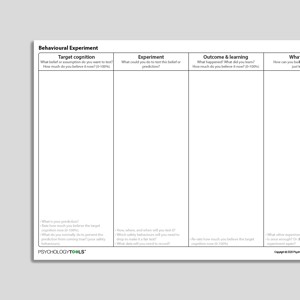

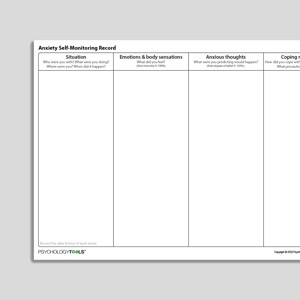























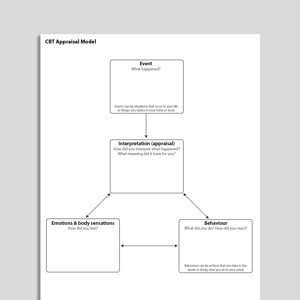
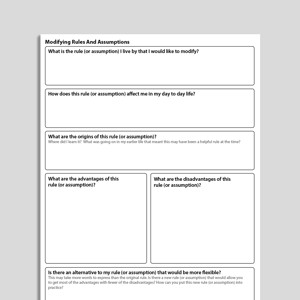



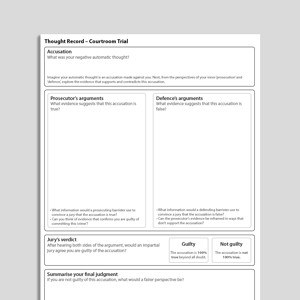





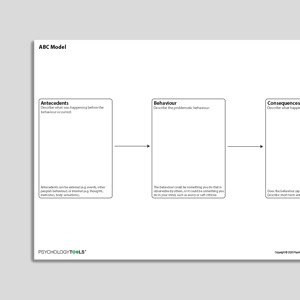

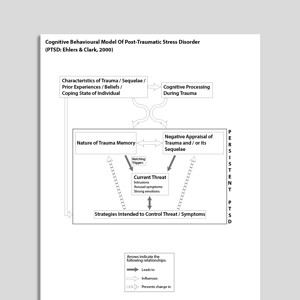




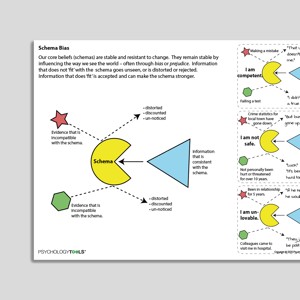






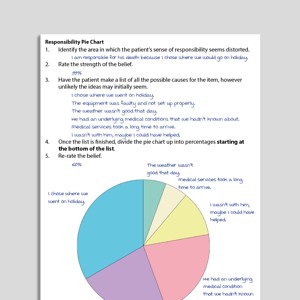


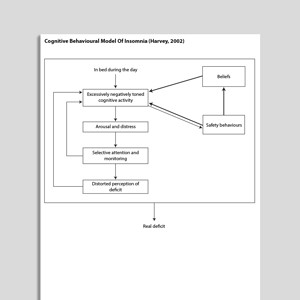



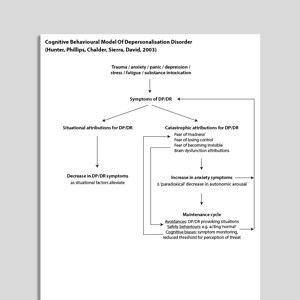
![[Free Guide] Critical Illness Intensive Care And Post-Traumatic Stress Disorder (PTSD)](https://media-engine-production-public.s3.eu-west-2.amazonaws.com/28384/conversions/%2A---critical_illness_intensive_care_and_ptsd_en-gb_Guides_Cover-preview.jpg)